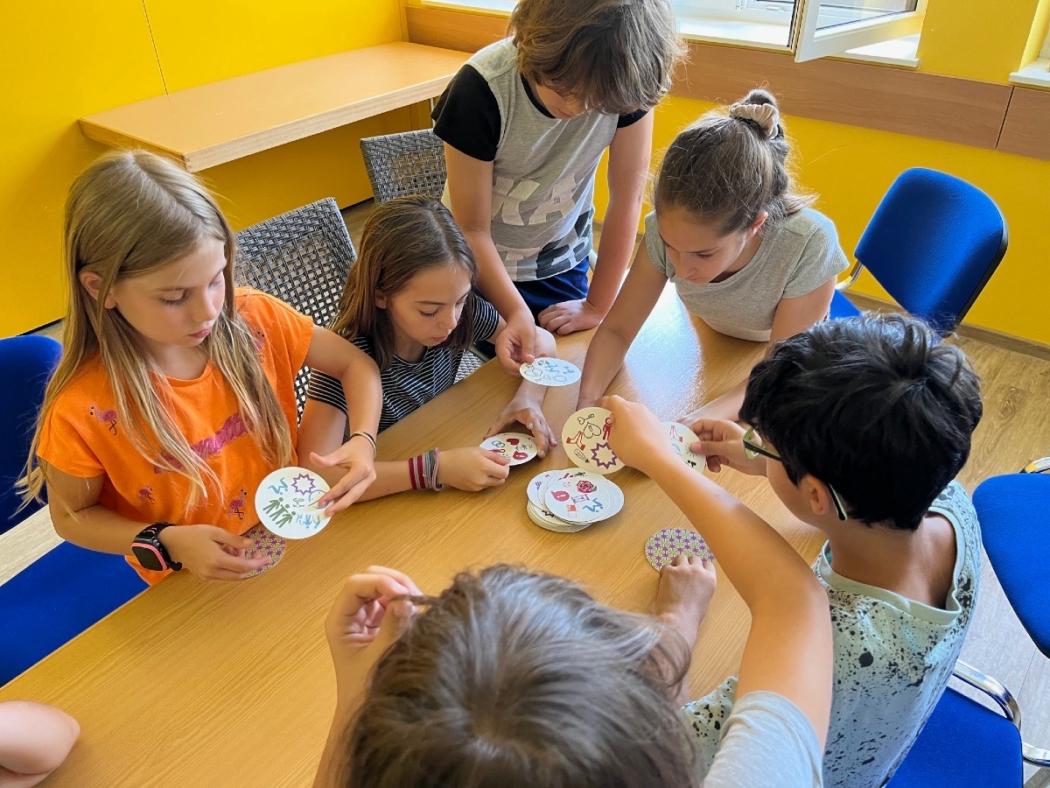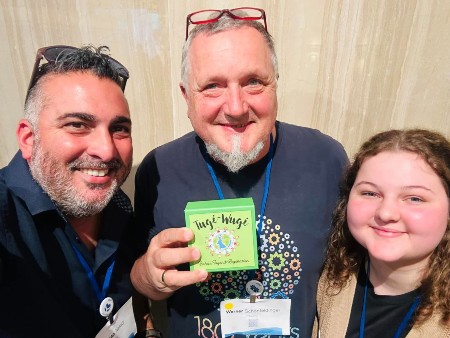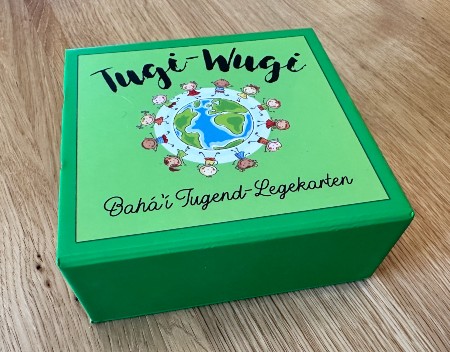Highlighting Australia
- As a proudly Australian initiative, we’re excited to showcase a collection of Australian stories, music, tributes and more.

Join activities, celebrations, study groups, spiritual empowerment and education programs for young people, and more.
Baha’i beliefs address essential spiritual themes for humanity’s collective and individual advancement. Learn more about these and more.


I had the pleasure of meeting the Schoenfeldinger family from Austria at this year’s EBBF conference and to learn about a virtues game designed by Dagmar Schoenfeldinger called Tugi-Wugi. Isn’t that a great name? I was touched by how tight and close the family was–perhaps this is testament to the power of playing family board games together!
Baha’i-inspired board games are rare so I was excited to hear all about how it works and what inspired Dagmar to create it. I loved her enthusiasm! Here’s what she shared with us:
Can you tell us a little about Tugi-Wugi and what it is?

Tugi-Wugi is based on a mathematical concept that I encountered in other games. Each of the 31 discs features six different symbols, with each symbol appearing on exactly one disc. This game idea and the underlying concept fascinated me.
As a music teacher, I adapted this concept for music lessons and developed a game with musical notes, accidentals, note values, etc. My students enjoy playing it and simultaneously learn the material.
For our weekly Baha’i children’s classes, I came up with the idea of creating a version of the game with virtues. The goal was to provide playful support for learning virtues.
Can you tell us why you decided to create this game, and why it was important to you personally?
I have been a Baha’i for 14 years and am constantly seeking new ideas to impart heartfelt education to children in our classes. The game Tugi-Wugi offers us diverse opportunities to talk about virtues in our children’s classes. The current version of the game includes about 30 virtues, which is a good starting point.
Together with my husband, I created a prototype of the game and tested it in children’s classes and with friends. It worked, and the positive feedback made me very happy.
It was particularly important to me to find the right symbols for the virtues on the cards. This took some time, but together with a designer friend, we finally produced the game. It is my small contribution to making the world a better place.
What do you hope players will gain from playing this game?

This game provides another way to internalize virtues. First, each of these good qualities should be discussed and understood.
Through repeated naming, the children’s vocabulary is expanded. They learn not only terms like “kind” and “nice,” but also understand and use words like “helpful,” “honest,” “gentle,” or “patient.” For small children, you can simply lay out the cards and have them find all the ones with the symbol of the day’s virtue (e.g., courage or patience).
My practical experience shows that especially younger children quickly associate the virtues with the symbols and then actively incorporate them into their vocabulary.
Is there anything else you’d like to share?
I am happy when many people around the world engage with good qualities and find my game Tugi (virtue)-Wugi (woogie) helpful and enjoyable. It’s not perfect, but I did my best and made it with love.
Where can people buy the game, and what languages is it available in?

The game can be ordered from the Baha’i Publishing Trust in Germany or directly from me (dagmar@schoenfeldinger.at). The game cards and symbols are generally language-independent. The instructions are included in the box in English and German. The instructions are also available for download in English, German, and Italian. I hope that more languages will be added in the future.
Thank you so much, Dagmar, for telling us all about Tugi-Wugi!
"*" indicates required fields

We recognise their continuing connection to land, waters and community. We pay our respects to Aboriginal and Torres Strait Islander people and their cultures; and to elders both past and present.
The views expressed in our content reflect individual perspectives and do not represent authoritative views of the Baha’i Faith.

Visit the site of the
Australian Baha’i Community
and the Baha’i Faith Worldwide
Notifications